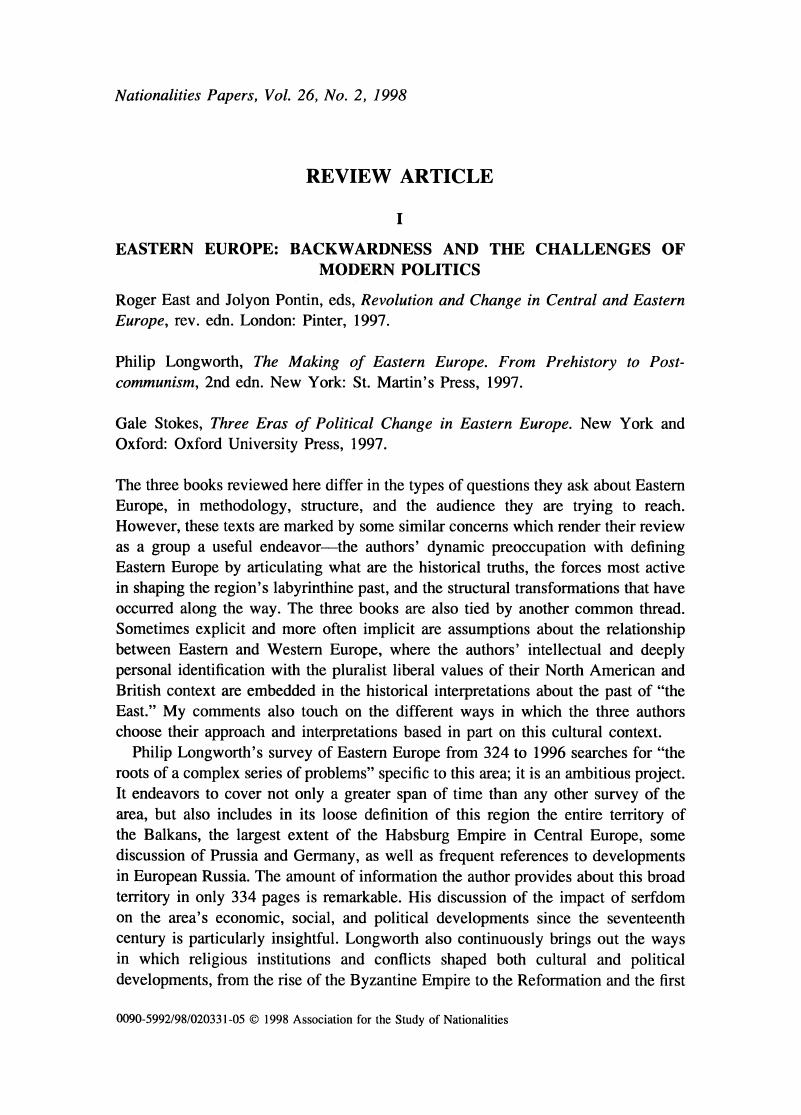No CrossRef data available.
Article contents
I. Eastern Europe: Backwardness and the Challenges of Modern Politics
Published online by Cambridge University Press: 20 November 2018
Abstract

- Type
- Review Articles
- Information
- Copyright
- Copyright © 1998 Association for the Study of Nationalities
References
Notes
1. Crampton's survey, Twentieth Century Eastern Europe (London: Routledge, rev. edn, 1996) was structured in such a fashion, with a chapter each on all the East European countries for the inter-war period, switching to the regional focus after the communist takeover. His narrative structure reinforced both the notion that these countries were very different and needed to be studied separately during the pre-communist period, and that 1944 was a watershed in terms of national uniqueness, wiping out much of what had been different among these countries until then.Google Scholar
2. The book is a revised edition of an earlier work by East, Roger, Revolutions in Eastern Europe (London: Pinter Publishers, 1992).Google Scholar




